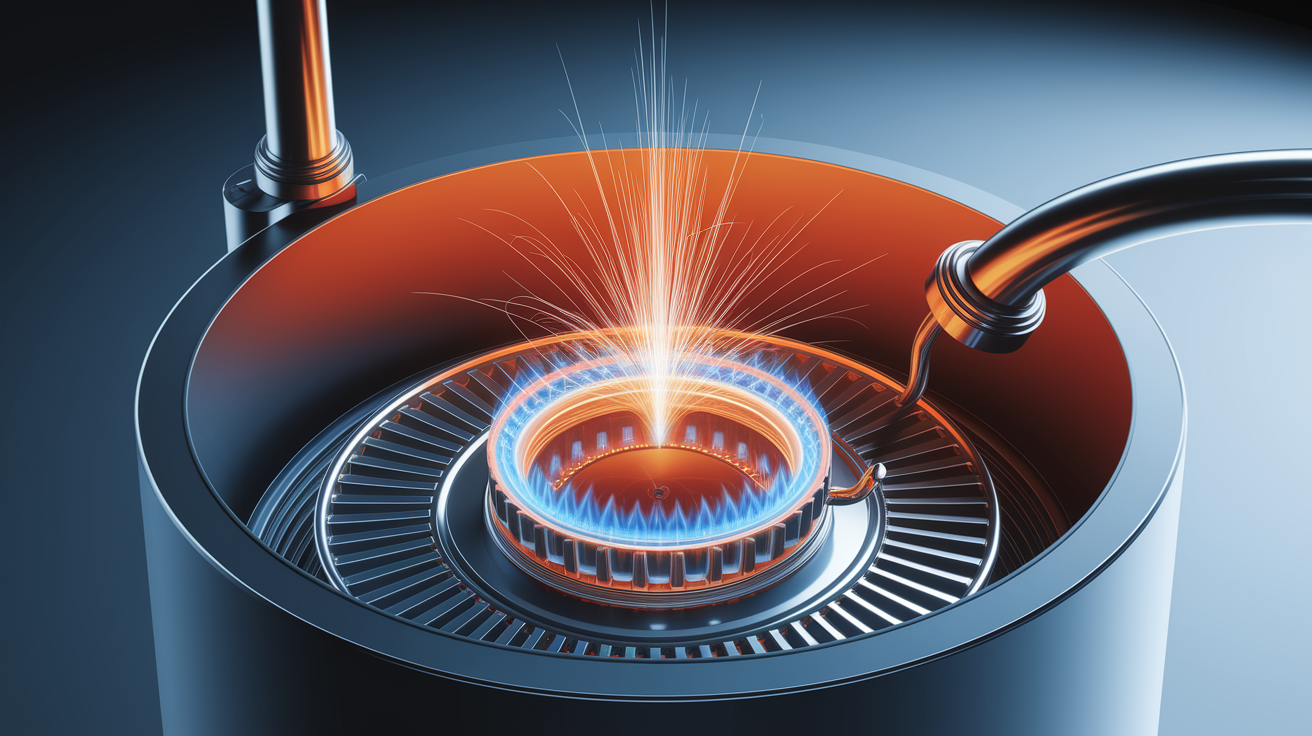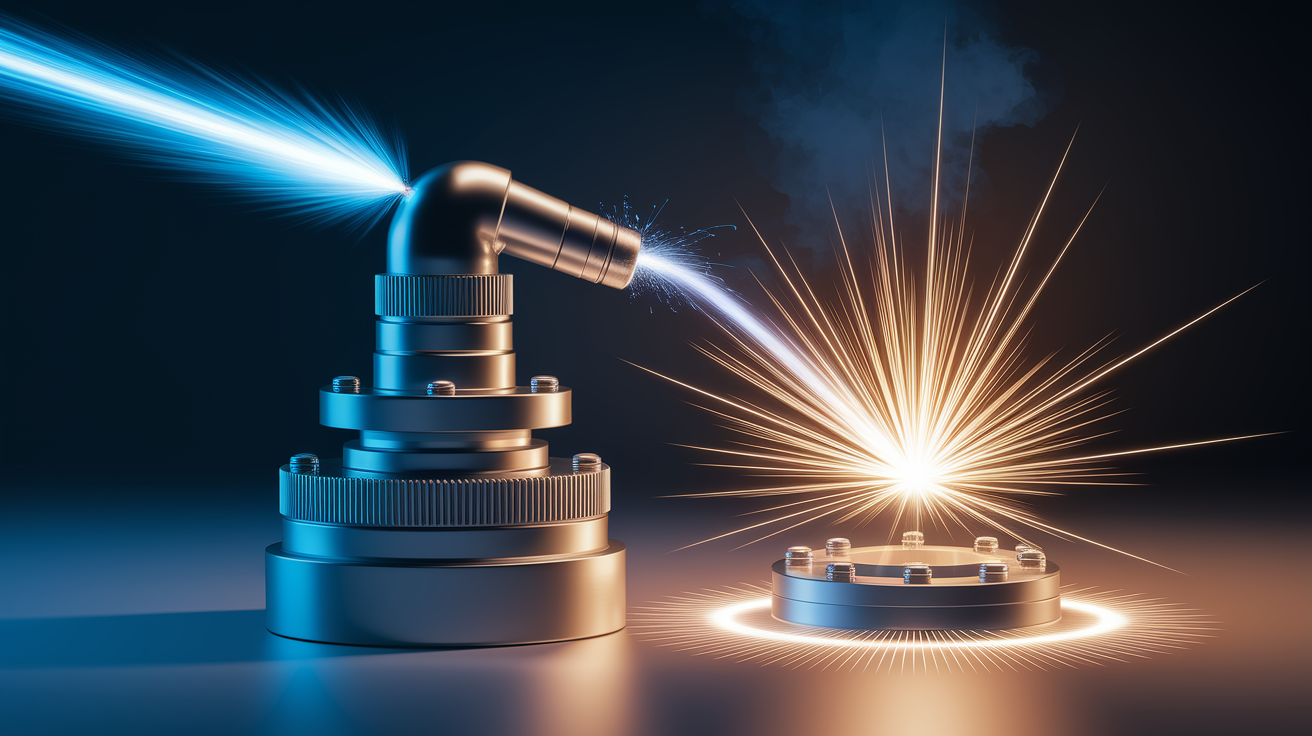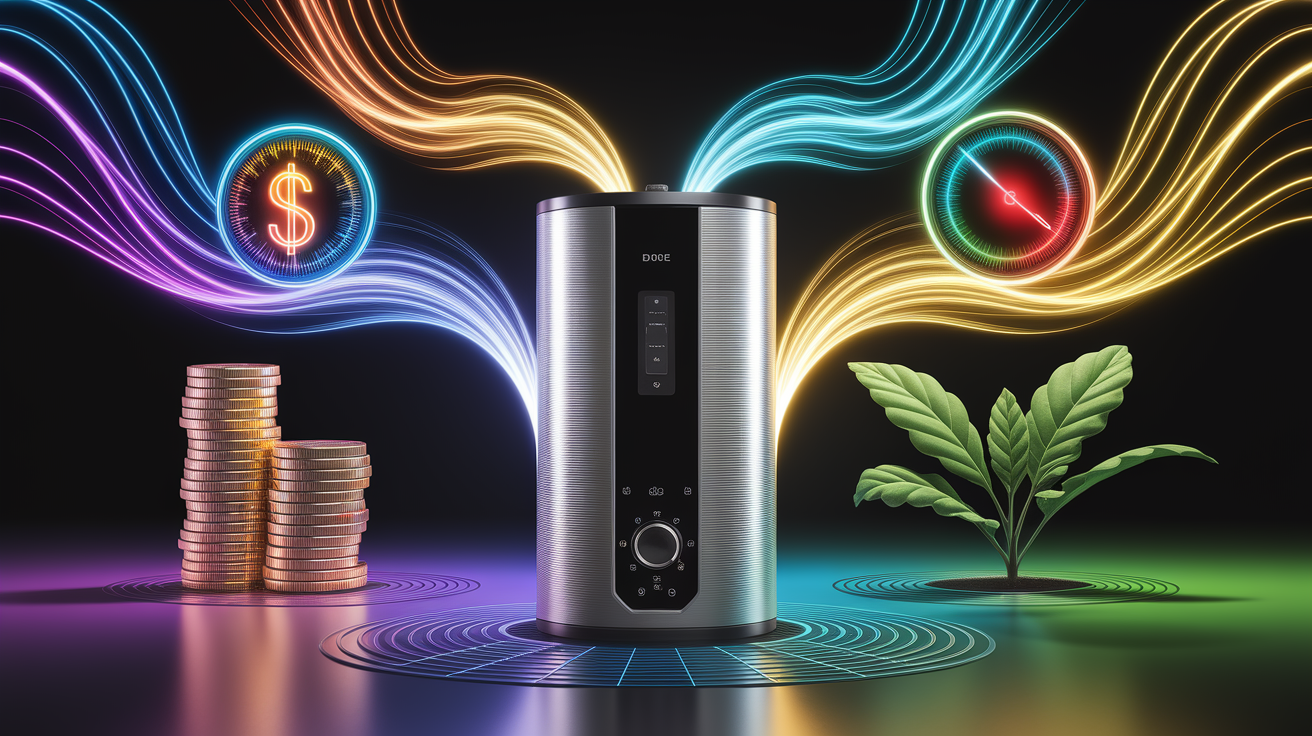If you’re researching water heater options or trying to understand your current system, you’ve likely come across the term “DSI” and wondered what it means. Direct Spark Ignition (DSI) represents a significant advancement in gas water heater technology, offering improved efficiency and safety over traditional pilot light systems. Whether you’re a DIY enthusiast looking to upgrade your home’s water heating system or troubleshooting an existing unit, understanding how DSI technology works can help you make informed decisions and maintain your equipment properly.
Igniting the Basics: What is a DSI Water Heater?
A DSI water heater is a modern type of gas water heater that uses an electronic ignition system instead of a continuously burning pilot light. DSI stands for Direct Spark Ignition, which describes exactly how these units operate – they create an electric spark to ignite the gas burner only when hot water is needed.

Unlike traditional pilot light water heaters that maintain a small flame 24/7, DSI systems eliminate fuel waste by igniting the main burner on-demand. This technology is commonly found in both residential home water heaters and RV water heaters, working with either natural gas or propane.
Key Differences from Pilot Light Systems
The main distinction between DSI and pilot light water heaters lies in their ignition methods:
- Traditional Pilot Light: Maintains a continuous small flame that ignites the main burner when needed
- DSI System: Uses an electronic spark electrode to ignite gas only when the thermostat calls for heat
- Energy Efficiency: DSI systems don’t waste gas maintaining a pilot light, making them more fuel-efficient
- Safety Features: Advanced electronic controls provide better monitoring and safety shut-offs
How to Identify a DSI Water Heater
You can determine if your water heater uses direct spark ignition by looking for these characteristics:
- No visible pilot light flame when the unit is not heating
- Electronic control board or module near the gas valve
- Spark electrode visible near the burner assembly
- Digital display or LED indicators on the control panel
How Direct Spark Ignition Works
Understanding how DSI technology operates helps homeowners appreciate its efficiency and troubleshoot potential issues. The direct spark ignition process follows a precise sequence that ensures safe and reliable operation.

Step-by-Step DSI Operation
Here’s how the DSI system works when your water heater needs to heat water:
- Temperature Detection: The thermostat senses that water temperature has dropped below the set point
- System Activation: The ignition control module receives the signal to begin the heating cycle
- Pre-ignition Safety Check: The system performs safety checks, including verifying proper venting and gas pressure
- Spark Generation: The spark electrode creates an electric arc near the burner
- Gas Release: The gas valve opens, allowing fuel to flow to the burner
- Flame Ignition: The spark ignites the gas, creating the main heating flame
- Flame Monitoring: The flame sensor confirms successful ignition and maintains monitoring
- Heating Cycle: The burner continues operating until the desired water temperature is reached
- Automatic Shutdown: Once the thermostat is satisfied, the gas valve closes and the flame extinguishes
Essential DSI Components
Several key components work together in a DSI water heater system:
- Ignition Control Module: The electronic brain that manages the entire ignition sequence
- Spark Electrode: Creates the electric spark needed to ignite the gas
- Flame Sensor: Monitors flame presence and provides safety feedback
- Gas Valve: Controls fuel flow to the burner with precise timing
- Thermocouple: Provides additional safety monitoring for proper gas shut-off
The coordination of these components ensures reliable operation while maintaining strict safety standards.
Benefits of DSI Water Heaters
DSI technology offers several advantages that make it an attractive choice for homeowners seeking efficient and reliable water heating solutions.

Energy Efficiency Advantages
Fuel Savings: By eliminating the continuously burning pilot light, DSI water heaters can reduce gas consumption by 10-15% compared to traditional systems. This translates to meaningful savings on utility bills over the unit’s lifespan.
On-Demand Operation: The system only burns fuel when actively heating water, maximizing efficiency and reducing waste.
Enhanced Safety Features
DSI water heaters incorporate advanced safety features that provide better protection than traditional pilot light systems:
- Automatic Gas Shut-off: If ignition fails or flame is lost, the system immediately stops gas flow
- Flammable Vapor Detection: Sensors can detect dangerous gas levels and trigger safety shutdowns
- Electronic Monitoring: Continuous system monitoring provides early warning of potential issues
- Emergency Cutouts: Temperature and pressure safety switches prevent dangerous operating conditions
Operational Reliability
Modern DSI systems offer improved reliability through:
- Consistent Ignition: Electronic spark ignition is more reliable than pilot lights, especially in windy conditions (important for RV applications)
- Self-Diagnostic Capabilities: Many DSI units can identify and report specific fault codes for easier troubleshooting
- Weather Resistance: No pilot light means no flame to be extinguished by drafts or weather conditions
Environmental Benefits
The improved efficiency of DSI water heaters contributes to reduced environmental impact through lower fuel consumption and decreased emissions from more complete combustion.
Considerations for Installation and Use
While DSI water heaters offer many advantages, there are important factors to consider before installation or when maintaining these systems.

Installation Requirements
Electrical Connection: Unlike pilot light systems, DSI water heaters require electrical power to operate the ignition control module. This typically means:
- Access to 120V AC power supply
- Proper electrical connections following local codes
- Battery backup options for RV installations or areas with unreliable power
Professional Installation Recommended: While DIY-oriented homeowners can handle some maintenance tasks, initial installation should typically be performed by qualified technicians due to gas line connections and electrical requirements.
Maintenance Considerations
DSI water heaters require specific maintenance attention:
- Electrode Cleaning: The spark electrode may need periodic cleaning to ensure reliable ignition
- Control Board Protection: Electronic components should be protected from moisture and temperature extremes
- Regular System Checks: Annual professional inspection helps identify potential issues before they cause problems
Common Troubleshooting Issues
Understanding common DSI problems helps homeowners know when they can address issues themselves versus when to call professionals:
Ignition Failures: If your DSI water heater won’t light, common causes include:
- Dirty or misaligned spark electrode
- Faulty ignition control board
- Gas supply issues
- Electrical power problems
For complex ignition issues, you might find it helpful to understand troubleshooting ignition problems in modern water heating systems.
Safety Lockouts: DSI systems may shut down and require reset if safety conditions aren’t met. This protective feature prevents dangerous operation but requires understanding of the reset procedures.
Cost Considerations
Initial Investment: DSI water heaters typically cost 15-25% more than equivalent pilot light models, but long-term fuel savings often offset this initial expense.
Maintenance Costs: While generally reliable, electronic components may occasionally need replacement, and service calls might be slightly more expensive due to the specialized knowledge required.
Understanding these maintenance needs is part of proper water heater care, and knowing the consequences of water heater malfunctions emphasizes the importance of keeping your DSI system properly maintained.
Flame On: Your Quick Guide Recap
DSI water heaters represent a significant advancement in gas water heating technology, offering improved efficiency, safety, and reliability compared to traditional pilot light systems. Here are the key takeaways for homeowners:
Essential Points to Remember
- Technology Advantage: DSI systems eliminate pilot light waste, reducing gas consumption by 10-15%
- Safety First: Advanced electronic controls provide better monitoring and automatic shutdowns
- Electrical Requirement: These systems need power to operate, making electrical connections essential
- Professional Service: While DIY maintenance is possible, installation and complex repairs should involve qualified technicians
- Long-term Value: Higher initial costs are typically offset by fuel savings and improved reliability
When to Choose DSI
DSI water heaters are ideal for homeowners who:
- Want to maximize energy efficiency and reduce utility costs
- Prioritize safety features and reliable operation
- Have access to stable electrical power
- Plan to keep their water heater for many years to realize fuel savings
Next Steps
If you’re considering upgrading to a DSI water heater or need to maintain your current system:
- Assess Your Needs: Consider your household’s hot water usage and energy efficiency goals
- Check Electrical Requirements: Ensure adequate power supply for DSI operation
- Get Professional Quotes: Compare installation costs and potential savings
- Plan for Maintenance: Establish a service schedule to keep your DSI system operating efficiently
Regular maintenance helps prevent issues and ensures your water heater continues providing reliable hot water. Simple preventive measures, such as protecting your home from potential water heater leaks, complement the advanced safety features of DSI systems.
By understanding DSI technology, you’re better equipped to make informed decisions about your home’s water heating needs and maintain your system for optimal performance and longevity.








